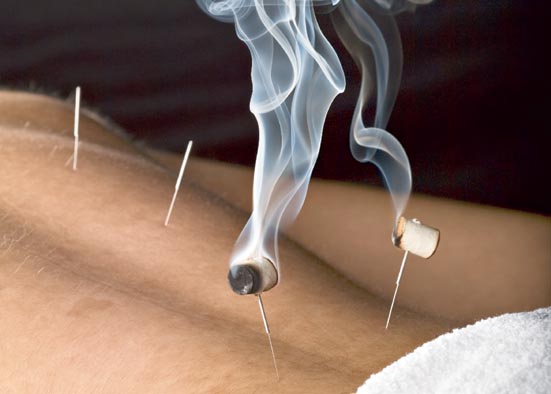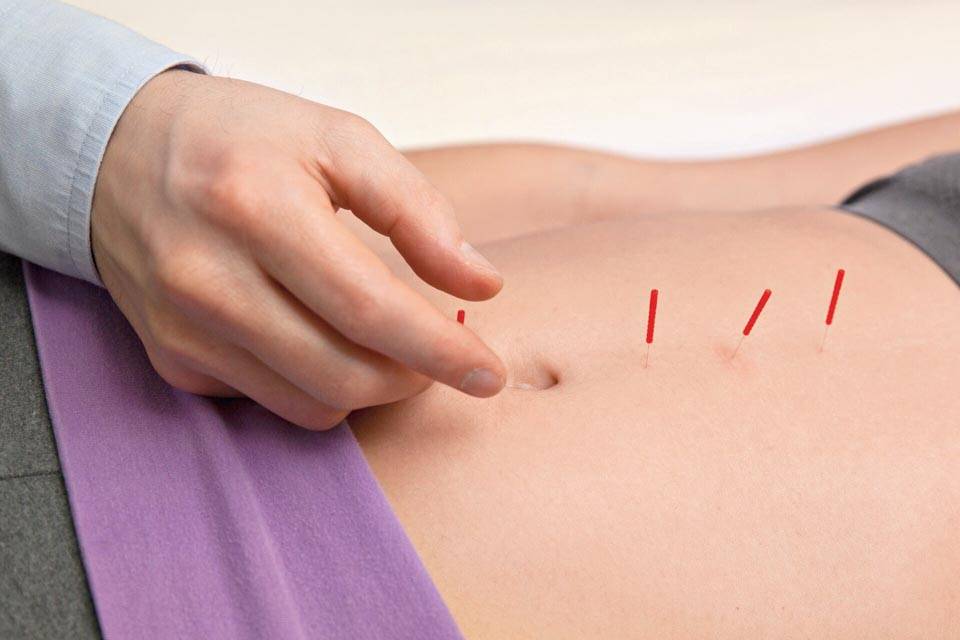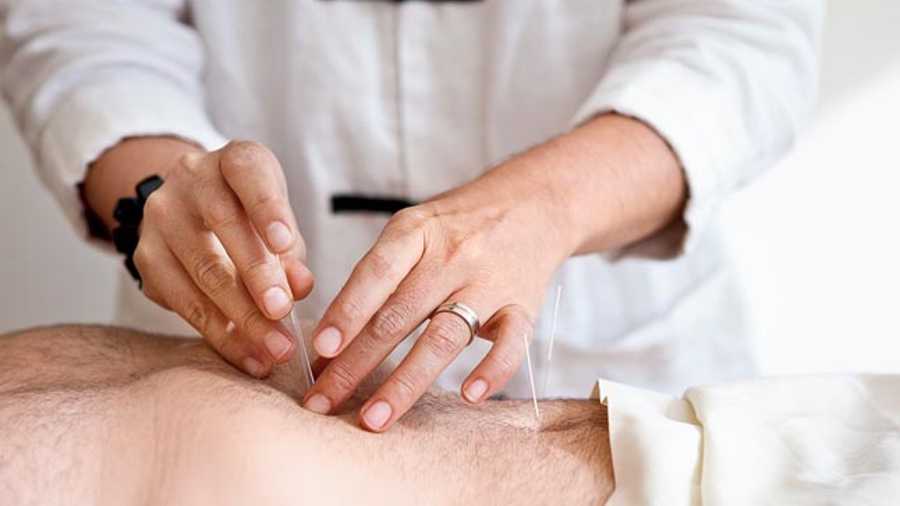We had in an initial article spoken of the types and benefits of acupuncture. We shall today focus on health issues related to our digestive system. Digestive system issues, no matter how small, impact our day-to-day activities and psychological well-being.
The gut (gastrointestinal tract) is that portion of the body that starts at the mouth and ends at the rectum, like a long tube. The gut processes food and the process of digestion begins in the mouth. The mouth contains salivary glands. When food enters the mouth, the amount of saliva increases, which contains enzymes (chemicals) that help start the process of chemically digesting the food. Hence, the first step towards better gut health is proper chewing.
The food then enters the stomach and then the small intestine, which is the place where food is digested and absorbed into the blood stream and the undigested food is then moved to large intestine for defecation. Accessory organs that play a secondary role in digestion are the liver, gall bladder and the pancreas.
Dietary issues such as food sensitivity, overconsumption of high-fat or acidic food, drinking alcohol, poor sleep, lack of exercise, trauma, serious injury, lifestyle issues as well as even chronic stress can all create havoc on your gut and cause digestive imbalance.
SOME DISORDERS OF THE GUT
The less challenging disorders that affect most people include constipation, bloating, belching, gas, heartburn, food allergies, diarrhoea, gastrointestinal (GI)-related skin diseases, nausea, rectal pain, low appetite and irritable bowel syndrome (IBS).
The more serious ones include acid reflux, Crohn’s disease, colitis, gall stones, piles, hernia, pancreatitis, ulcerative colitis, ulcers, PMS-related GI issues, and hypoglycemia/hyperglycemia.

THE GUT-BRAIN AXIS
Digestion of food is controlled by your brain, nervous system and various hormones released in the gut. Symptoms like bloating, constipation, diarrhoea, nausea, cramping and abdominal pain are an indication that things are not moving through the digestive tract efficiently. One of the side effects of an overactive sympathetic nervous system is decreased digestive function.
Acupuncture helps by balancing the gut-brain axis as well as the nervous system to reduce stress, which in turn improves digestive function. It also helps in reducing pain and inflammation, which helps regulate stomach acid and promote peristalsis, i.e., muscle contraction in the digestive tract which aids in better digestion.
HOW ACUPUNCTURE TREATS DIGESTIVE ISSUES
The stomach’s improper functionality affect all the organs contained in the abdomen, leading to a variety of health issues. From an acupuncture perspective, an overactive nervous system will decrease the efficiency of the digestive function and, therefore, lead to the inability to properly absorb nutrients and excrete wastes.

Acupuncture treatments work by balancing the nervous system to reduce hyperactivity and stress, therefore balancing the gut and improving function. In turn, this process decreases pain and inflammation and helps to regulate acid production and natural peristalsis.
DIGESTIVE ISSUES AFFECT THE WHOLE BODY
From a holistic medicine perspective, poor gut health and digestive problems are not rooted in only the digestive tract — the mouth, intestines and stomach — because it treats the body as an entire inter-connected system rather than compartmentalising systems and symptoms.
Treating digestive issues with acupuncture can improve emotional, mental as well as physical well-being. After seeking acupuncture treatment for digestion, patients often report long-term improvement in their overall health with an increase in energy and a decrease in stress.
Acupuncture manipulates the flow of energy along the meridians of the body and gets it moving in the direction it is supposed to be going. Just as GI disorders may be seen as problems with the movement of food through the stomach and intestines, acupuncture seeks to address the “counterflow” of energy through the body.
In acupuncture, stomach energy needs to move downward through the digestive tract. If there is something moving incorrectly, then the qi (life energy) is rebelling, it needs to be balanced. Acupuncture also has an effect on pain processing at both central and peripheral levels.
Acupuncture promotes gastric peristalsis in patients with low initial gastric motility and suppresses peristalsis in those with active gastric motility. Acupuncture, along with dietary changes and nutritional guidance, can help repair and restore the gut function to good health.
Anything can cause a dysfunctional gut. If any part of your body is weakened due to emotional upset, trauma, or illness, then it will throw off the rhythm of your body and create an imbalance. Your gut, along with everything in life, relies on balance. Scientists call this homeostasis.
Digestive disorders can be simple, like flatulence or gas, or they can be much more serious such as Crohn’s disease. Most people don’t report it to their doctors either because they assume it is normal to have gas, bloating or abdominal pain. These symptoms can be indicators of much more serious underlying problems. Left untreated, these symptoms can grow into complications such as autoimmune disease.
The gut is also the “second brain” of the body. When there are problems in the GI tract it can manifest mentally as well as physically.
GASTROESOPHAGEAL REFLUX (GERD), OR ACID REFLUX
It is also known as indigestion. It occurs when the valve between the esophagus (food pipe) and the stomach does not function properly and, as a result, food and stomach acid can travel back up the esophagus and cause a burning sensation.
Other symptoms of GERD include sore throat, sour taste in the back of the mouth, asthma symptoms, dry cough and trouble swallowing. If left untreated, GERD can cause bleeding, damage and even esophageal cancer.
Acupuncture improves esophageal function for patients with GERD even in cases where drugs are ineffective. Acupuncture helps in releasing melatonin (happy hormone), which can reduce the incidence of epigastric pain and pH level of your stomach (how acidic your stomach is).
Stress often makes GERD symptoms worse. Your body’s stress response can increase the amount of acid in the stomach as well as slow down the digestion.
GASTRITIS
An irritation and inflammation of the lining of the stomach is known as gastritis. Symptoms include nausea, abdominal pain, loss of appetite, burning sensation in the stomach, belching, unexpected fullness after eating, hiccups, weight loss, vomiting, black stool, and so on.
Gastritis can be caused by a number of different factors like blockage of qi in stomach and intestine, food habits and emotional imbalance.
Because of accuracy in diagnosis, acupuncture can yield excellent results in treatment of gastritis and promote healing of stomach lining. Acupuncture can help reduce stress, improve digestive function and prevent future stomach disorders by balancing the qi.
NON-ALCOHOLIC FATTY LIVER DISEASE (NAFLD)
It is a condition in which there is an accumulation of excess fat in the liver associated with obesity, insulin resistance and dyslipidemia (abnormally elevated cholesterol or fats in the blood), which increases the chance of clogged arteries and heart attacks and strokes. NAFLD is one of the main causes of cirrhosis and carcinoma of liver.
Acupuncture can effectively treat NAFLD and has better therapeutic effect on hepatic (liver) fat status and insulin resistance. Acupuncture inhibits inflammation, reduces oxidative stress and promotes lipid metabolism in liver cells.
CROHN’S DISEASE
It is a chronic medical condition that causes inflammation throughout the digestive tract. The condition is an inflammatory bowel disorder that can cause significant discomfort including gastrointestinal bleeding, intestinal blockages and abscesses. It can also cause significant mental stress, depression and anxiety.
Acupuncture may help reduce these symptoms by affecting how the brain interprets stress and pain signals. It increases blood flow, reduces inflammation, eases pain and aids relaxation. It reduces diarrhoea and weight loss.
Electro acupuncture affects the area in the brain called the homeostatic processing network, the area which is responsible for regulating pain, specifically visceral (organ) pain that includes stomach pain. Electro acupuncture could help achieve balance between brain and gut to reduce feelings of discomfort in those with Crohn’s disease.
LIPID PROFILE (HYPERLIPIDEMIA)
Hyperlipidemia is a condition where there is an abnormal elevation of cholesterol or fats in the blood. Electro acupuncture helps in reducing total cholesterol, LDL cholesterol and triglyceride levels. It also reduces insulin resistance and thus it balances the lipid profile. Acupuncture improves lipid metabolism by regulating intestinal absorption.
LACTOSE INTOLERANCE
It is a condition in which people have symptoms due to the decreased ability to digest lactose or milk products and the reason is the absence of a special intestinal enzyme — lactase — which is responsible for breaking down lactose into simple sugar. Symptoms may include abdominal pain, bloating, diarrhoea, gas and nausea.
Acupuncture is an effective form of treatment for treating allergies (food allergy). It improves the digestion and ingestion in the body and helps tone up enzyme action.
HAEMORRHOIDS (PILES)
It is a condition where the veins in the rectum and anus get swollen and inflamed which, causes discomfort and bleeding. Haemorrhoids are caused by straining during bowel movements, obesity, chronic constipation and pregnancy.
According to acupuncture philosophy, haemorrhoids can often be related to a build-up of heat and/or dampness in the lower abdominal area; it’s the heat and dampness that cause the blood vessels to swell. Acupuncture helps in drawing excess heat and dampness away from the area where the haemorrhoids are.
WEIGHT LOSS
Weight gain, according to acupuncture, is caused by body imbalance due to malfunctioning of liver, spleen, kidney, thyroid gland and endocrine system. Acupuncture can stimulate the body’s energy flow (qi) to impact factors that can reverse obesity, such as increasing metabolism, reducing appetite, lowering stress and affecting the part of the brain that feels hunger. Food cravings can be controlled by manipulating points on the ear.
ULCERATIVE COLITIS
Ulcerative colitis is a type of inflammatory bowel disease that affects large intestine. It causes inflammation and ulcers along the lining of the colon.
Acupuncture is an effective therapy for ulcerative colitis because it activates or enhances the body’s natural painkillers. This helps your body regulate inflammation, decrease disease activity and lessen pain associated with ulcerative colitis.
GI issues are too common. There are various digestive issues that people may consider “normal” but which lead to a life of discomfort and sometimes even an overuse of over-the-counter self-medication treatments. Acupuncture can help reduce dependency on medication by mitigating symptoms and conditions.
National Institute of Health and the World Health Organization have recognised acupuncture as an effective method to treat digestive imbalance and gut health.

Pritee Ganatra is a certified medical practitioner specialising in alternative medicine for over 20 years. She is the founder and principal practitioner, Sarojini Sujok Clinic. Facebook: Pritee Ganatra,Email: smilepritee17@gmail.com, Instagram: @priteeganatra










